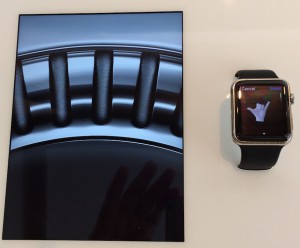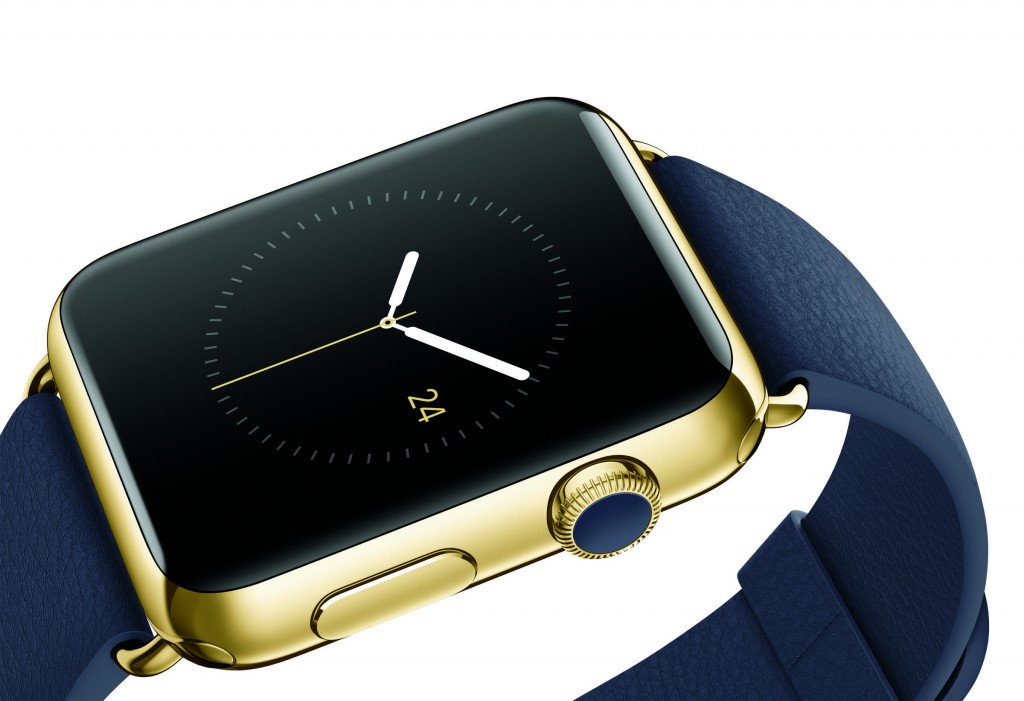The first time I was paid for writing about the Mac was in 1985 when A+ magazine published a reader’s tip I submitted. It detailed how to use ResEdit to modify the Welcome to Macintosh message. For 300 words, I got paid $50. It was far from a momentous event. At the time, I didn’t expect it to lead anywhere. My day job was still as a professor of psychology. But, as it turned out, the reader’s tip was the spark that ignited a flame.
I had the good fortune to be around for the dawn of some of the most significant technological developments in human history: the arrival of personal computers, the emergence of the Internet and the World Wide Web, and the current dominance of social media and mobile devices. These and other technological advances continue to alter our world at an ever accelerating pace. One day Apple is on the verge of bankruptcy. The next day (or so it sometimes seems), it is the largest most profitable company on earth. Who’d have guessed?
At a personal level, these changes became the impetus for a new career direction — a career I did not foresee and would never have predicted. That initial reader’s submission led to me becoming a contributing editor for several Mac magazines, a book author (most notably of Sad Macs, Bombs & Other Disasters) and the creator/editor of one of the earliest Mac websites (MacFixIt). Again, who’d have guessed? Certainly not me.
The result has been three decades of doing things I thoroughly enjoyed and getting paid for doing them. Who could ask for more?
Which brings me to today. I’ve decided to call it quits and hang up my virtual pen. What I expect to be the last article I get paid to write was posted to Macworld last December.
To any of you who have followed my work, this should not be a surprise. In fact, some of you may feel this announcement is more than a bit anti-climactic. I’ve been flirting with retirement for the past two years, gradually diminishing my published output — even giving a “retirement” session at Macworld/iWorld last year. For the past year, the only paid writing I did was a small number of articles for Macworld. A few weeks ago, I “gave notice” and told the folks at Macworld that I was done. That made it official — and made it real to me in a way that it had not been before.
Why now? There’s no mystery. I’m old enough that it seems appropriate and financially well-off enough to manage it, so why not? While I could keep writing occasional articles for Macworld, it seemed better to make a clean break. Recent events helped move me in this direction.
In the past year, Macworld ended its print publication (as well as laying off almost its entire editorial staff, who just happened to be the people I had known and worked with for more than a decade). Around the same time, Macworld/iWorld announced its demise. Several notable Mac websites similarly came to an end in the last year or so, including TUAW and my own MacFixIt (which, subsequent to my leaving it, had been run by CNET).
At the risk of sounding melodramatic, I began to feel that these were all signs of a “torch-passing” moment. There is a generation of tech writers (of which I am a member) whose careers date back to the 80’s. We still vividly recall “highlight reel” moments from prior decades — like Steve Jobs unveiling the original Mac or the Boston Macworld Expo keynote that kicked off Steve’s triumphant return to Apple. For much of a younger generation, these events are tantamount to ancient history.
For now, these two generations co-exist in many work environments. However, as is inevitable and appropriate, the balance is steadily shifting towards the younger generation. Over the next decade, I expect the older generation to exit the stage in increasing numbers. As one of the oldest members of that generation, I am merely at the leading edge of this trend — which makes now seem like a perfect time to leave. I expect there will be times when I miss being “part of the action.” But I leave without regrets.
I don’t intend to entirely disappear from the online world. I plan to write columns here at Slanted Viewpoint from time to time. And I may still do occasional podcasts at MacVoices. Of course, I will continue to post tweets. Beyond that, my life will be lived offline.
One last thing
Whatever success I have had, I could not have achieved it without help. Lots of help — from a great bunch of people. To all of those listed below (and to any I may have forgotten), I offer my heartfelt thanks.
Bob LeVitus. In addition to giving me my start as a freelance writer (when he was editor of MACazine), Bob was essential in getting me started as a book author and as a speaker at Macworld Expo.
Dan Frakes. A colleague of mine at MacUser and later Macworld, Dan was also my co-author for Mac OS X Help Line. For a while, he was even an editor at MacFixIt. He remains a good friend.
Chris Breen. Another friend and colleague from both MacUser and Macworld. Prior to his recent move to Apple, Chris, as an editor at Macworld, was the editor of my Bugs & Fixes column.
Chuck Joiner. As the person behind MacNotables and MacVoices, Chuck was my conduit into the world of podcasting. Thanks to Chuck, I was able to have all the fun of podcasting without having to do any of the work.
Dave Rogelberg. While at Addison-Wesley, Dave was the incredibly patient editor of my first edition of Sad Macs. He also generously provided advice that helped further my book authoring career.
Cliff Colby. Cliff was the project editor of the books I wrote for Peachpit Press. His friendship and encouragement were a big part of what made it such a delight to work for Peachpit.
Ric Ford, Eric Belsley, Kurt Christensen and Stan Flack. When I first started MacFixIt, these four ran competing websites (MacInTouch, The Macintosh Resource Page, VersionTracker and MacCentral, respectively). Yet each one went far out of their way to provide the help I needed to get MacFixIt up and running.
Robert DeLaurentis, Ilene Hoffman and Shawn Platkus. When the work at MacFixIt became more than one person could handle, these three joined the site and became essential in preventing me from collapsing under the load.
Ralph Risch. When I was looking to sell MacFixIt, Ralph, as CEO of TechTracker, made me an “offer I couldn’t refuse.” I’m glad he did.
Jason Snell. As the editor of Macworld, Jason consistently made it easy for me to work there.
Scholle McFarland. As a copy editor at Macworld, Scholle never failed to improve whatever I submitted.
Dave Hamilton, Bryan Chaffin, Jeff Gamet and John Martellero. For several years, I did a column for The Mac Observer called User Friendly View. It was my first gig writing op-ed columns — which I had long wanted to do. As a bonus, I got to work with these great guys every day.
Tonya Engst and Adam Engst. As the publishers of the Take Control book series, Tonya and Adam gave me the opportunity to write one of the first books about the iPhone.
Paul Kent and Kathy Moran. During my almost two decades as a speaker at Macworld Expo, Paul and Kathy were the hard-working duo most responsible for making it such a fantastic experience.
Jonathan Cerf and George Sullivan. Back in the early 1980’s, I worked with Jonathan and George on a journal about the game of Othello. They helped me hone the skills I would later use when writing about Macs.
And many many more, including:
John Anderson, Marjorie Baer, Neil Bauman, Jeff Baudin, Gordon Bell, Jennifer Bell, P.A.M Borys, John Braun, Gleb Budman, Jim Bruce, Serenity Caldwell, Jeff Carlson, John Chaffee, Adam Christianson, John Christopher, Raines Cohen, Robert Coffman, Peter Cohen, Marty Cortinas, Colin Crawford, Matt Deatherage, Albert Dion, Charles Downs, Glenn Fleishman, Lex Friedman, Lynda Gousha, Anne Griffin, Rob Griffiths, Jon Gotow, Andy Ihnatko, Russ Ito, Susan Janus, Shawn King, Rocky LaRochelle, Chuck LaTournas, Robert Leeds, Dan Littman, Jean MacDonald, Carol McClendon, Kirk McElhearn, Philip Michaels, Dan Miller, Dan Moren, David Morgenstern, Rik Myslewski, Tom Negrino, Gary-Paul Prince, Naomi Pearce, Nancy Peterson, Elissa Rabellino, Schoun Regan, Nadyne Richmond, John Rizzo, Lorene Romero, Michael Rose, Nancy Ruenzel, Ian Schray, Jon Seff, Sal Soghoian, Dori Smith, David Sparks, David Stillman, Derrick Story, Duane Straub, Dave Taylor, Neil Ticktin, Ladd Van Tol, John Welch, Ben Wilson, Dan Wood and Jon Zilber.
Of course, a special thanks to my wife Naomi. None of this would have been possible without her support.
Finally, thanks to Apple and all the people who have worked there. Without them, I would have had nothing to write about. As a related postscript, I was recently contacted by Apple about a potential job. Bad timing — given that I was on the verge of retirement. But I was none-the-less flattered, surprised, intrigued and very much tempted. As you might imagine, much internal conflict ensued. In the end, I remained on my retirement path.
Update: May 19: I made a few additions and corrections to the “thank you” list.


